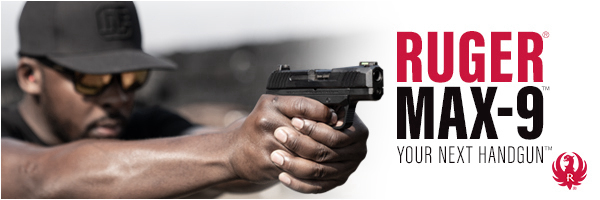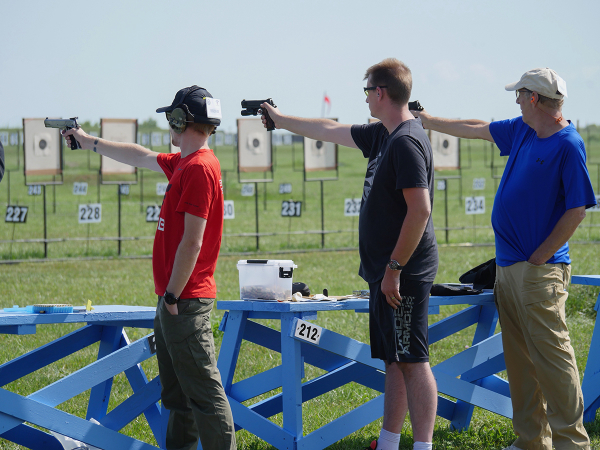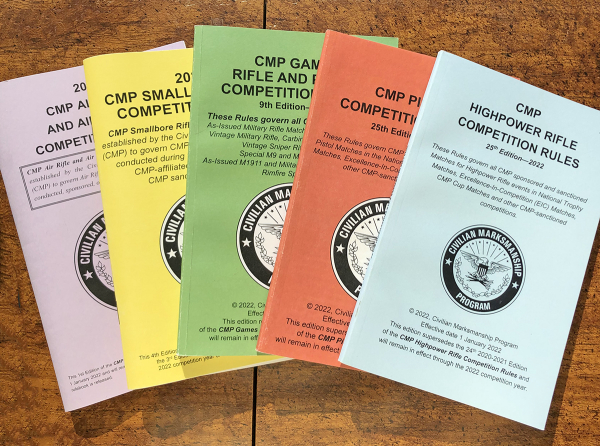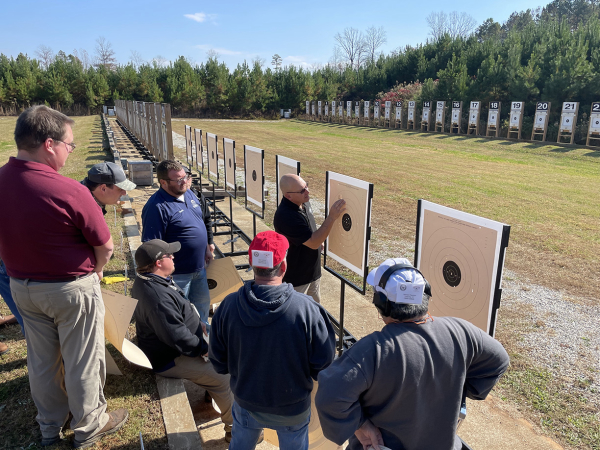Big Wins for USA Archers in Tokyo Preliminary Individual Matches
TOKYO, Japan – Team USA is finally on target at the Tokyo 2020 Olympic Games as Brady Ellison and Mackenzie Brown are through to the top 16 in the individual events. After a difficult start in the finals venue, where USA’s top ranked teams came up short in some very challenging competition conditions, it seems they’ve got it figured out and are poised for success headed into the 1/8th rounds later this week.
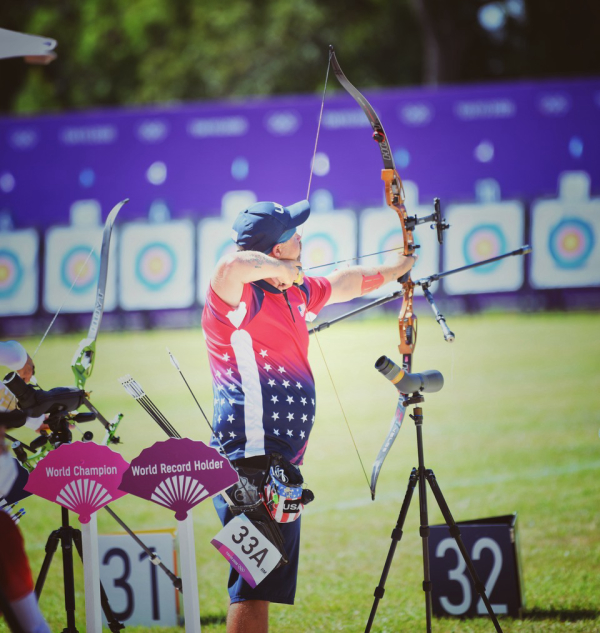
Four-time Olympian, three-time medalist, World Champion, World No. 1, world record holder and the world’s only 5-time World Cup Final Champion Brady Ellison bears many titles on his shoulders but has been eagerly seeking the Olympic Champion title to add to his most impressive list of accomplishments.
“We made a small form change, an adjustment to my finger tab, which I think really helped,” commented Ellison, “and then Butch [Johnson] actually texted me today and said that he saw something, so I made sure to watch out for that and I think just everyone helping out, I felt pretty good today, I felt calm. First thing I’ve been in the Olympic finals had felt no nerves so I’m feeling pretty feisty.”
Ellison was on point, smoking back-to-back 6-0 shut outs, never opening the door for his opponents to gain on him.
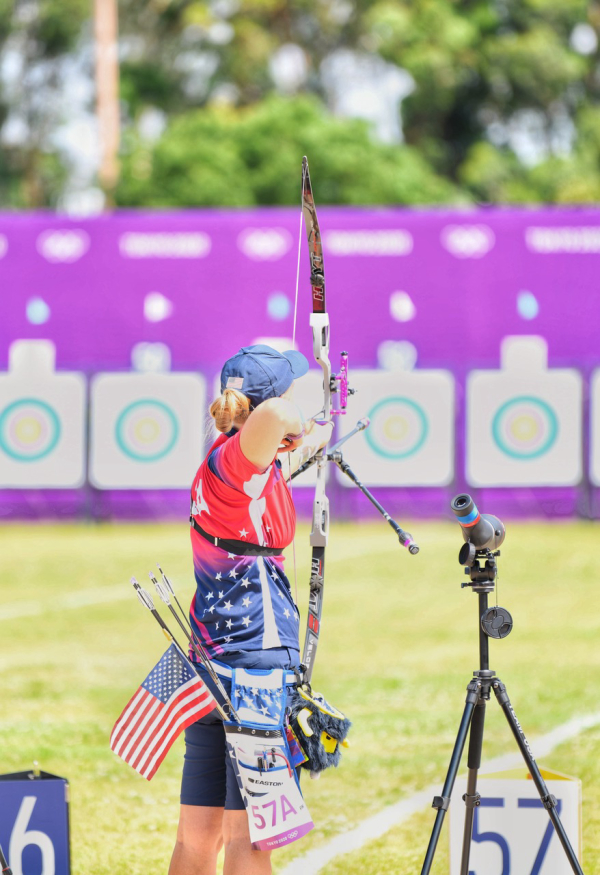
Brown dropped her first set, but then never looked back as she stacked set points relentlessly, firing almost every arrow into the center rings for impressive scores. She shared: “It was a good day. I feel really good, I feel like what my focus is on really helps in this finals field and I think that will help me going into these next matches. I’m really happy I stuck to what I was supposed to do and didn’t get too caught up in the rest of the competition. It gives me good confidence.”
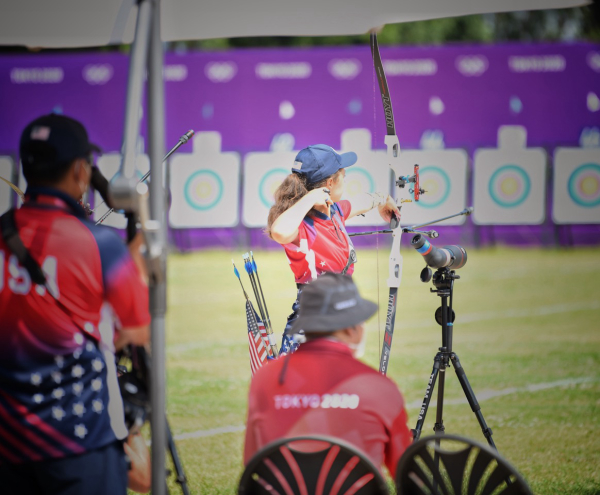
Rookie Jennifer Mucino-Fernandez had a stellar performance, gaining her footing in a 6-4 first round match against Ukraine’s Anastasia Pavlova and then, in what could have been one of the largest coups of the day, she took World No. 1 Deepika Kumari of India the full five sets, coming down to the last arrow to decide the match.
Finishing 17th at her first Olympic Games, Mucino was quite pleased with her shooting: “In the first match I was more relaxed, the first few sets were easy to shoot, but then I became more nervous and my arrows started going down because I started shooting weak, but overall I think I did a great job and I’m really happy,” she commented. “I really enjoyed my experience here and I learned so much.”
It was also Casey Kaufhold and Jack Williams’ first Olympic Games appearances, and a valuable experience for these promising young athletes with bright futures ahead in the sport. 17th seed Kaufhold cleared a 7-3 first round win before she was stopped by No. 16 Ren Hayakawa of host nation, Japan, also finishing 17th. 29th ranked Williams met a tough first opponent in France’s No. 36, Pierre Plihon, who clinched a 6-4 victory in a tight back and forth match where the two split two of the five sets.
Jacob Wukie takes the stage tomorrow for his preliminary individual matches, then the women compete through medal finals on Friday and the men finish Saturday. Follow Team USA via live scores, and tune in for video streaming and broadcast.
A Few Minutes With….Matt Suggs, Chief Executive Officer, USA Shooting
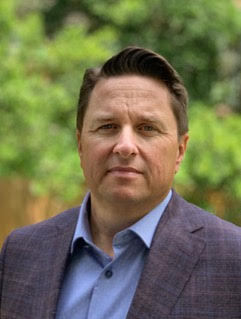 |
Matt Suggs took on the role of CEO on August 1, 2020, but the former ten-time National Team Member is no stranger to the sport. During his short tenure he has overseen an organization that looks to be exceeding its goals in the 2020 Tokyo Olympics. The Outdoor Wire’s Alex Miceli is in Tokyo for the Olympic Games, and had the opportunity to ask Suggs some questions about USA Shooting as Suggs was assisting the skeet Gold medalist Vince Hancock and Amber English.
TOW: Can you talk about the USA Success so far in Shooting?
SUGGS: We’re on track to hit our medal targets that we have at the USOPC, we actually had a target of four medals, and we’ve done that. I think that’s a great achievement. We’re also looking at the three sixth places that we got and thinking maybe there’s room for even more.
We have some more medal opportunities before the end of the competition is over and we’re focused on trying to maximize our outpu
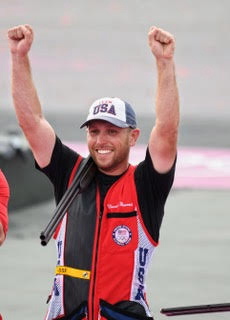 |
I’m thrilled with the results so far, I think a lot of people expected Vince Hancock to win another gold medal, and he had a really dominant performance in the final.
What we saw from Amber in her final and actually her last round is indictive of what she did in trials, she had a really great solid performance, shot a 25 in the last round, to carry the momentum into a final against a really great world class field.
And Will Shaner had just won a world cup over in Croatia, so this team isn’t really sneaking up on anybody because we had a successful 2021 campaign with World Cup wins in India, Croatia and Lanato, Italy with shotgun.
Our expectations were high coming into this week.
TOW: How is it important from an operational or funding standpoint to show success at these Olympics going into the next Olympics in Paris in three years?
SUGGS: For shooting and may other sports, the Olympics is the pinnacle of that sport, so it is the ultimate measuring stick for the shooting sports, and it is critical not for our own fundraising, but for the funding we receive from the USOPC. They are a hyper-performance based organization and they invest their finite funds in sports and organizations that produce medals at the Olympics.
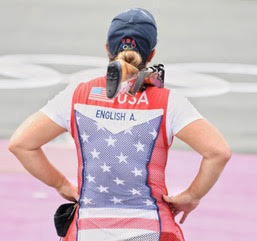 |
TOW: Many athletes are starting to discuss mental health issues in regard to competing, obviously in your sport your athletes are dealing with day-to-day issues with their own lives and having to compete, how much can you discuss what USA Shooting is doing in those areas?
SUGGS: I think that’s one of the big strides that our partnership with the USOPC has made in the last year or two. There has always been a focus on sports psychology, so the psychology of improving performance in competition; but what they’ve done is to split the health care side of mental health out from that. Now there’s almost a separate path if the athlete needs counseling for things other than sports performance related issues. We provide that through the U.S. Olympic and Paralympic Committee.
I think COVID had a big impact on that. When you delay the Olympics, the capstone event for many of these athletes— for a year — it obviously has a big impact on them emotionally. What I saw coming into the operational side of USA Shooting last year was that there is definitely a focus on trying to assist athletes through types of issues as well as preparing them mentally to compete.
TOW: You had a shooter that qualified, but was suspended for three months just before the Olympics, can you talk about that situation?
SUGGS: I don’t know if you’re familiar with how the Safe Sport system is organized? A few years ago, the USOPC helped to launch the U.S. Center for Safe Sport, the purpose of that organization is to be an unbiased third-party investigating issue of emotional and physical abuse.
We had an athlete that was selected to through our normal procedures for the Olympic team, but he received a three-month suspension and that excluded him from the team. Other than that, I really can’t comment on the nature of the offense, a lot of that is covered by confidentially language and obviously were very focused on supporting the victim.
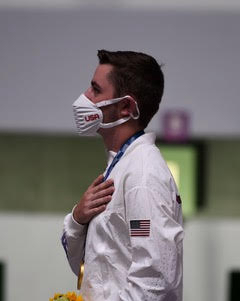 |
TOW: If you continue your success in these Olympics, how do you take that and build it into additional benefits for USA Shooting?
SUGGS: It has a multi-faceted impact. The first impact is that athlete like a Will Shaner becomes a role model for young athletes and they start thinking I could be in the Olympics four years from now or eight years from now or in this particular case three years or seven years from now in 2028. That has a big impact on the grass roots programs, junior programs when an American wins a medal.
So, if you look at our women’s skeet program, which is the strongest in the world, if you look at our top 6 or 7 skeet shooters, any one of them is a medal contender, but we can only bring two to the Olympics.
A lot of that stated because of the success of Kim Rhode and now we got in that top six, we have two Olympic champions, multiple world champions and everyone in that top six has won a world cup.
We say it’s creating a rabbit that everyone else can chase, so medals like the one’s we’ve seen from Will Shaner, Lucas Kozeniesky, Mary Tucker may create that scenario on the rifle side.
The second facet has to do with obtaining our grant and our annual funding that we receive from the USOPC. They’re one of our largest sources of athlete funding, but they want to invest their dollars where they think they can get medal production and I believe we’re showing that USA Shooting is well positioned not only to win more medals this week but really well positioned to win medals in Paris with many of the same shooters that are winning this week and are planning on competing in Paris.
Last, all the sports in the United States are reliant on private donors, we don’t receive funding from the government. But we do compete against teams that receive massive amounts of funding from their governments, so have to go out and raise the money we use to train and prepare our athletes for the next Olympics.
So, having a track record of success is critical to going out and encouraging those donors because everybody likes to be part of winning team and as we go out to see our donors and sponsors in the fall, we will be going to them as a a winning team.


